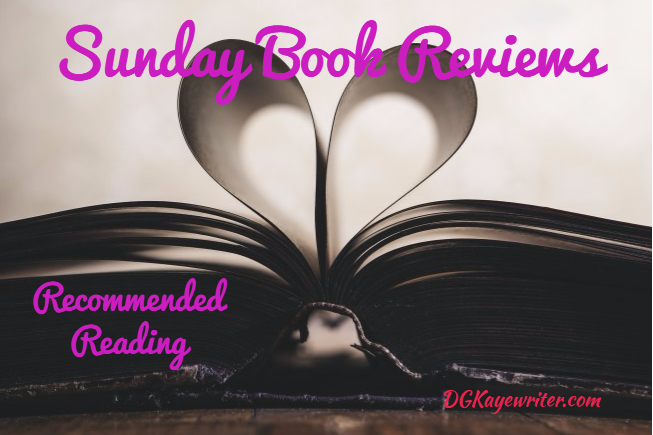My Sunday Book Review is for another book by Alice Hoffman – Incantation. This is the second book I’ve read by Hoffman in the last month. The first book I read of hers, The World That We Knew, I reviewed a few weeks ago and I am hooked on her stories because she writes stories about people’s lives in different time periods and have the elements of magical realism -well researched with fictional stories about true things that happened in the time with a sprinkle of mysticism, and often about the human condition. This recipe of elements are right up my reading alley.
Blurb:
Bestselling author Alice Hoffman tears a page from history and melds it with mysticism to create a spellbinding, highly acclaimed tale about the persecution of Jewish people during the sixteenth century.
Estrella is a Marrano: During the time of the Spanish Inquisition, she is one of a community of Spanish Jews living double lives as Catholics. And she is living in a house of secrets, raised by a family who practices underground the ancient and mysterious way of wisdom known as kabbalah. When Estrella discovers her family’s true identity–and her family’s secrets are made public–she confronts a world she’s never imagined, where new love burns and where friendship ends in flame and ash, where trust is all but vanquished and betrayal has tragic and bitter consequences.
Winner of numerous “best book” citations and infused with the rich context of history and faith, Incantation is a transcendent journey of discovery and loss, rebirth and remembrance that Newbery Award-winning author Lois Lowry described as “Magical and spellbinding…Painful and exquisitely beautiful.”
My 5 Star Review:
I’ll preface this book review by saying for a 166 page book taking place in the 1500’s, during the Spanish Inquisition, this is one heavy book. Well researched, many parts painful to read, entwined with love and beauty and of course what Hoffman is known for – her magical realism where the realism of the horrors, betrayals, superstitions, religious persecution and condemnations are met with love and compassion, commitment to religion, risk, mysticism and survival of the craftiest in this heart-grabbing story about Estrella di Madrigal, a sixteen year old girl during the Spanish Inquisition who learns what she’s known of her life till now has been a secret lie.
The story is told in first person by Estrella, and begins in the late 1500s, during a time when Jews in Spain were being persecuted and tortured for simply not being Catholic or Protestant. The only way they remain living is incognito as ‘conversos’, as Christian converts. But many who’ve converted remain practicing their faith in secret.
The book begins with Estrella and her lifetime best friend and next door neighbor, Catalina in the town square where they went to the well to fetch water and witnessed a huge book burning bonfire. Books were not allowed for fear people may get educated (my spin).. Estrella’s mother happened to be in the town square market when she saw her daughter watching in amazement and sadness as the bonfire grew so big, flames were flying onto people, and at the same time an old Jew was publicly being beaten to death because he wouldn’t let go of his book. Abra, Estrella’s beautiful widowed mother, grabbed her daughter away from the center and told her, “Never look at other people’s bad fortune, if you do, it will come back to find you instead of its rightful owner!”
Magic, Judaism and Muslims were all condemned, and those who kept their faith lived behind ‘the gate’ and wore red circles stitched to their clothing for identification. But there were many Jews who had fled Spain and many more who chose to stay, some risking their lives by converting to Christianity (conversos) and going to church on Sundays and living as good Christians. And some of those ‘conversos’ remained true to their Jewish faith living as Christians in the outside world and practicing their faith secretly at home.
We’re soon introduced to more characters in the story – Estrella’s strict and overbearing maternal grandmother, her grandfather who spends most of his waking hours in a secret room in the basement of their home, her brother Luis – a few years older than her who is off to the seminary preparing to become a priest, and Catalina’s cousin Andres who lives in her home, and who Catalina has a ‘fatal’ crush on with hopes and plans to marry someday, only Andres loves her like a sister.
Once we’re exposed to the ugliness and hatred of the times, the story opens up the true peril. Estrella watches as their lovely neighbors on the other side of their house – the Arrias family, is being dragged out of their homes, beaten and shackled as the soldiers screamed out to them Marranos -the name given to Jews at the time -Direct translation – ‘pigs’. The accusation – ‘secretly’ practicing Jews, despite their upstanding membership to the church. Estrella was sickened and petrified all at once for her fear for them, leaving her wondering what on earth these gentle people could have done to be stripped of their homes, family, and certain death.
Quote from Estrella – “The day when the arrests began reminded me of the day of the burning books, when the air was filled with sparks, when something bad crept out onto the Plaza from the deep, evil place, something that would become so strong no one could catch it or beat it down or lock it away. Now I understand those days were not really a beginning but a continuation. A monster is hard to see and even harder to kill. It takes time to grow so huge, time to crawl up into the open air. People will tell you it’s not there; you’re imagining things. But a book is a book. Pages are pages. Hawks are hawks. Doves are doves. Hatred is always hatred.”
Jews were taken to the armory – heresy was enough to convict to death. An accusation by a citizen was enough to arrest and convict whether true or not. Their children would be given to good Christian families.
The plot thickens after Estrella spies in the Arrias’s family window after they were taken, Catalina and her mother looting the home. Estrella is sickened enough to turn her away from her once best friend. And more friction occurs after Catalina spots Andres giving a gentle kiss to Estrella. We’ll now begin to watch the fire rise between these once best friends – a fine line between friendship and hatred. And a new town edict causing panic and lies and fears when the government orders anyone who knows of a Jew pretending to be Christian, they must turn them in – the reward, the rat will receive half of all that accused person owned, split with the government. This edict of course, is quite tempting for some to lie and condemn innocent people for personal gain, selling out people for profit. A perfect glimpse into the human condition, scruples and morals.
Estrella is a curious girl. Not long after the lunacy edict begins we’ll learn along with Estrella, a very big secret (no spoilers) after she spots the door ajar in the ‘secret’ room in the basement where she spies her grandfather stitching up a wounded citizen and a shelf full of books. She instantly realizes her family could be killed if it were to come out her grandfather practiced medicine. Medicine was considered hocus pocus as doing so made one a ‘sorcerer’ in the government’s eyes.
As Catalina’s jealousy grew for Estrella and her cousin Andres’ now blooming attraction for each other, her cold heart decided that Estrella’s mother who worked with healing herbs and flowers, and the family’s constant avoidance of wanting to eat pork would be a wonderful way to cause trouble for them if she reported Estrella’s family for heresy to hurt them as she felt betrayed by Estrella and Andres. No spoilers after this, just a quote from the aftermath from Estrella as she confronted Catalina:
“Instead of knocking on the door, I picked up a stone and threw it as hard as I could. Something shattered. Something broke. Catalina came to the door and opened it, not all the way, but enough. I could see her.”
“This isn’t what I wanted to happen,” she said to me. “But you betrayed me.”
“I looked hard to see if she was saying some cruel joke; but, no. She meant it.”
“You took my cousin,” Catalina said.
“And then I understood that she had no idea what she’d done to my family. She thought love and hatred were equal.” ‘
The above profound quoted conversation chilled my bones. What had happened before this conversation I’ll save for other readers, just as what transpired after the conversation you will want to find out for yourselves.
The author adds a historical note at the back of the book explaining how the Jews experienced persecution in Spain as early as the 12th century, reaching it’s peak during the Spanish Inquisition when in 1481 Queen Isabella and King Ferdinand requested the pope extend it into Spain lasting from 1481 until the late 18th century.
From ancient times to present this story demonstrates the power of love and betrayal, and how some unscrupulous people would sell out another human being for the love of money.



Great review, Debby, but this book sounds a bit heavy for me. x
LikeLike
Not for everyone Stevie. I get it. 🙂 x
LikeLike
Thanks Debby it sounds an amazing book. When you think about how long ago this was all taking place, it is hard to believe in some parts of the world, including in our own countries there is still persecution and violence towards those who wish to practice their own faith. A terrible time in history.. Excellent review ♥
LikeLike
Thank you Sal. And you are so right. I felt the review was long enough and hesitated to get into how some things never change and the same groups of religion continue to be persecuted from the beginning of times. Seems we never learn. 😦 ❤ xx
LikeLike
Thanks for the introduction. Sounds excellent ❤
LikeLike
My pleasure Christoph. ❤
LikeLike
Great review. Sounds very interesting. I loved “The Name of the Rose,” movie–perhaps I should read Umberto Eco’s book it was based on and compare it to this one.
LikeLike
Oh, thanks for the mention, I’ll check it out. I am fascinated with these types of stories. 🙂
LikeLike
Thanks, Debby. I have some of the author’s books but haven’t got to them yet, although not this one, and it is a topic and a historical period I’ve always felt fascinated by. You might have read it already, but if you haven’t, The Cathedral of the Sea, by Ildefonso Falcones, although it talks about the building of a wonderful church in Barcelona, it also focuses on the way the Jews living in the city at the time were treated, and how they were blamed for everything that went wrong (including the plague).
Sally’s comment is so true, as well. The times seem to move very fast for certain things, but prejudice remains.
Thanks for the recommendation and happy new year.
LikeLike
Thank you Olga, for your comment and the book recommend which I will be dashing over to Amazon to add to my list. Yes, seems many don’t learn from history sadly. 🙂 Happy New Year Olga ! ❤
LikeLike
What a great review, Debby. This sounds like a powerful book. It’s hard to imagine such persecution.
LikeLike
It really is, that’s why I was captivated by the story. 🙂 x
LikeLike
Gosh, Debby, this certainly sounds like an excellent read, but quite heavy going. History is full of tragedy.
LikeLike
You said it Robbie! Maybe one you’d enjoy? 🙂
LikeLike